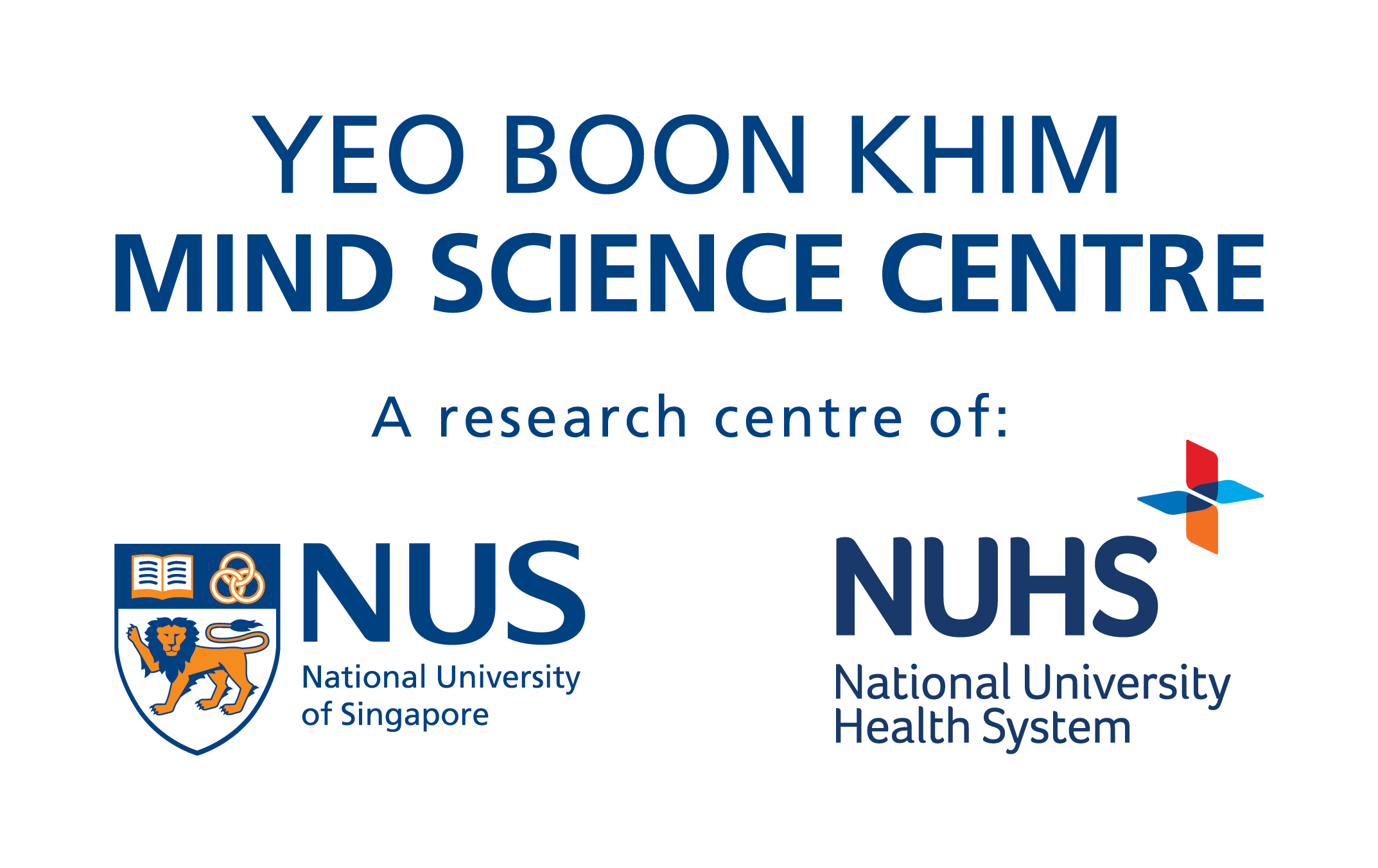MIND-SCIENCE CENTRE GREATER GOOD SERIES EVENT – HOW TO BUILD MENTAL RESILIENCE IN OUR YOUTH?
To conclude the Inaugural Hikikomori Round Table and Symposium, MSC has organised the Greater Good Series Dinner Dialogue at Orchard Hotel Singapore as the finale. Prof Lo Tit Wing, A/Prof Takahiro A. Kato and A/Prof John Wong Chee Meng explored potential suggestions to build mental resilience amongst our adolescents and youth for a more resilient society.
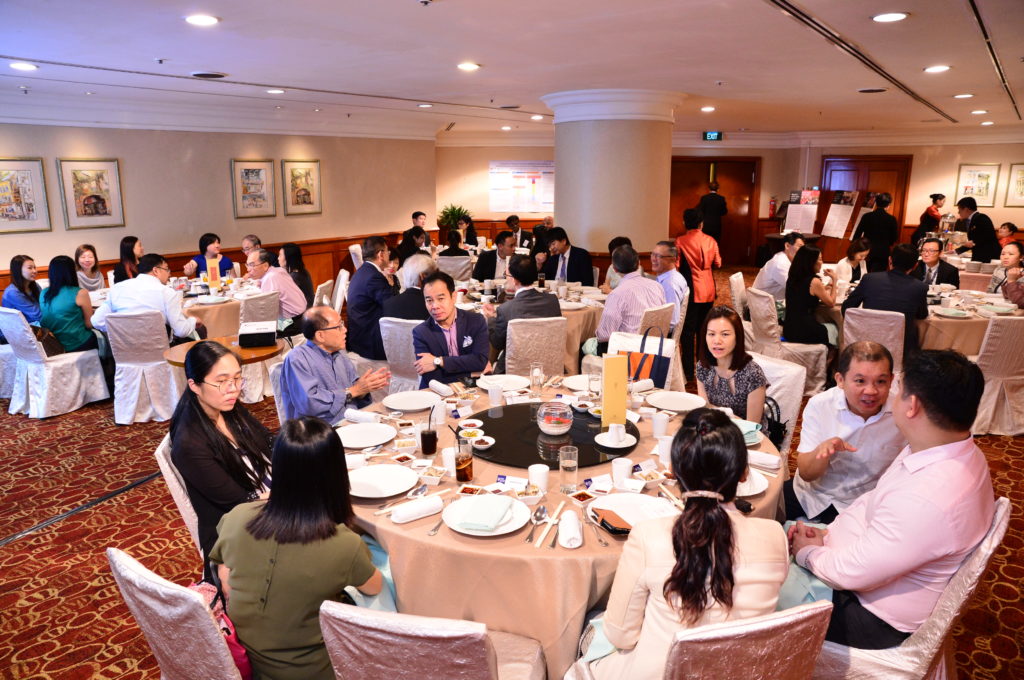
Guests engaging in a lively exchange before the dinner.
The dinner kicked off with an opening address by A/Prof John Wong, Centre Director for the Mind-Science Centre and the Lin Jo Yan and Yeo Boon Khim Professor in Mental Health and Neuroscience, followed by a Chinese Banquet prepared by Hua Ting Restaurant. A/Prof Kato began the evening with an introduction to Hikikomori, with specific focus on the hidden youth – a syndrome evolving around late adolescents and young adults who have presenting symptoms of social withdrawal, isolation, depression, social anxiety with psychosocial impairment, internet gaming and/or social media addiction.
The term Hikikomori may have originated in Japan but the syndrome has also become prevalent in other Asian countries. Such hidden youth often have lower levels of resilience and can often feel overwhelmed when thrust into high-pressured working environments leading to withdrawal, loneliness and depression. So how can we help our children develop the skills needed to not only survive but also thrive in a turbulent, unpredictable world?
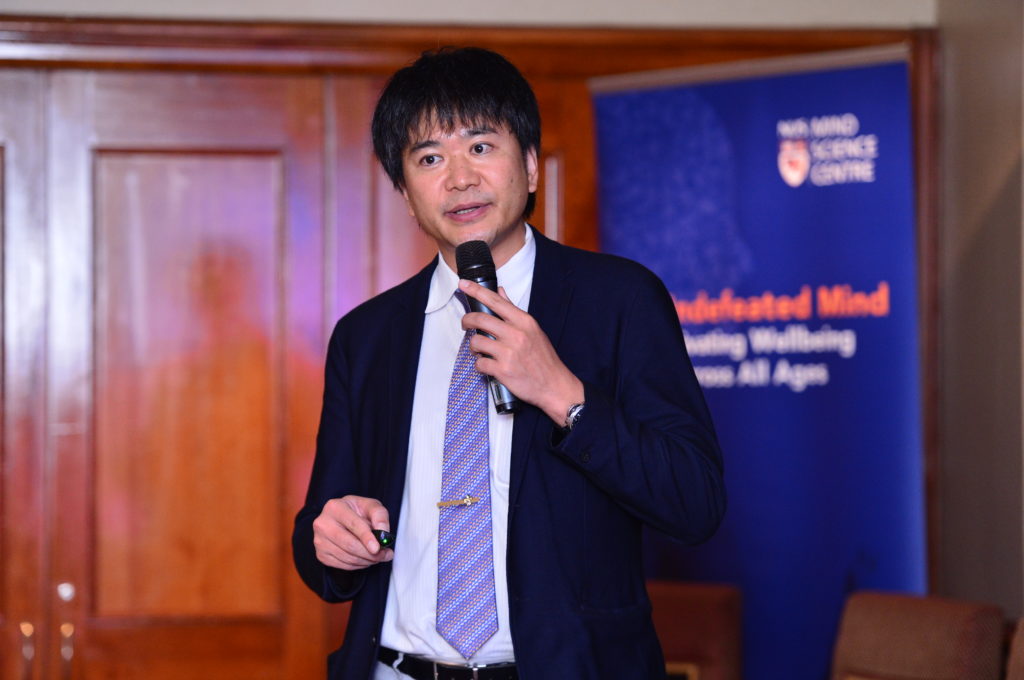
A/Prof Takahiro A. Kato sharing insights into the hidden youth and ensuing interventions.
With Hikikomori prevailing in Japan, A/Prof Kato shared how Japan is making efforts in curbing the pervasiveness of the syndrome. Ongoing projects for early intervention of Hikikomori were introduced, with a strong recommendation on psychosocial approach. Nonetheless, A/Prof Kato recommends to first start with family support.
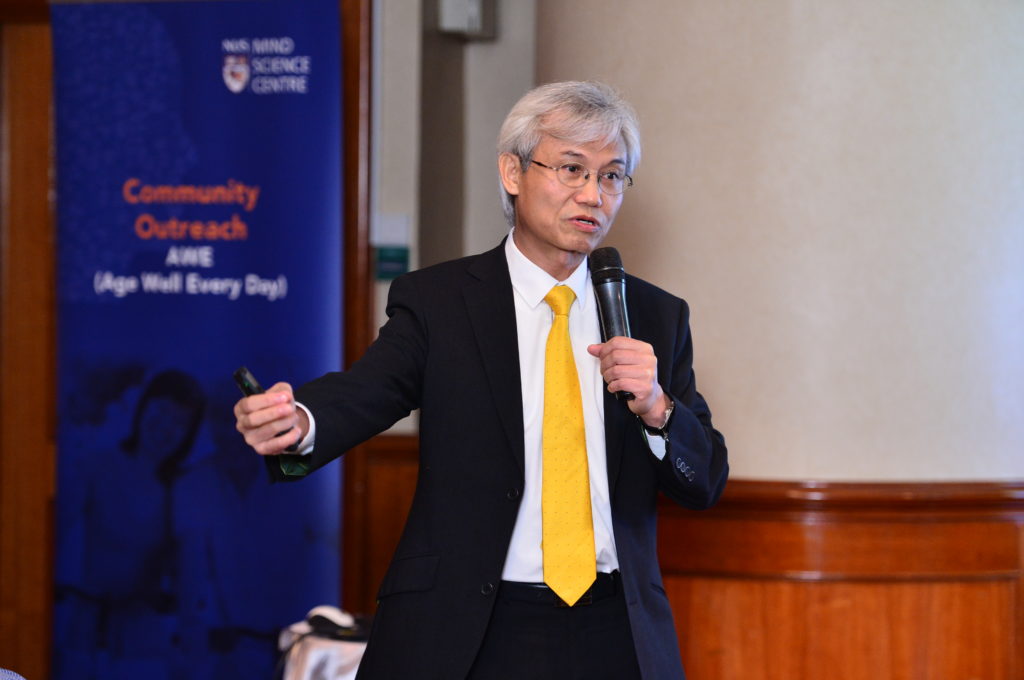
Prof Lo Tit Wing presenting a different perspective in the Singapore’s context.
After gaining insights into Hikikomori, the audience was presented with an alternative perspective by Prof Lo. Many in the audience resonated with the topic as they either were parents themselves or work with youths on a regular basis. Most, if not all, benefitted from Prof Lo’s recommendations to first build a healthy relationship, and then help develop their mental resilience to face the complexity and volatility of the real world. The speaker highly recommends starting from a personal level at home, which concurred with A/Prof Kato’s suggestion to start the intervention of Hikikomori at the family level.
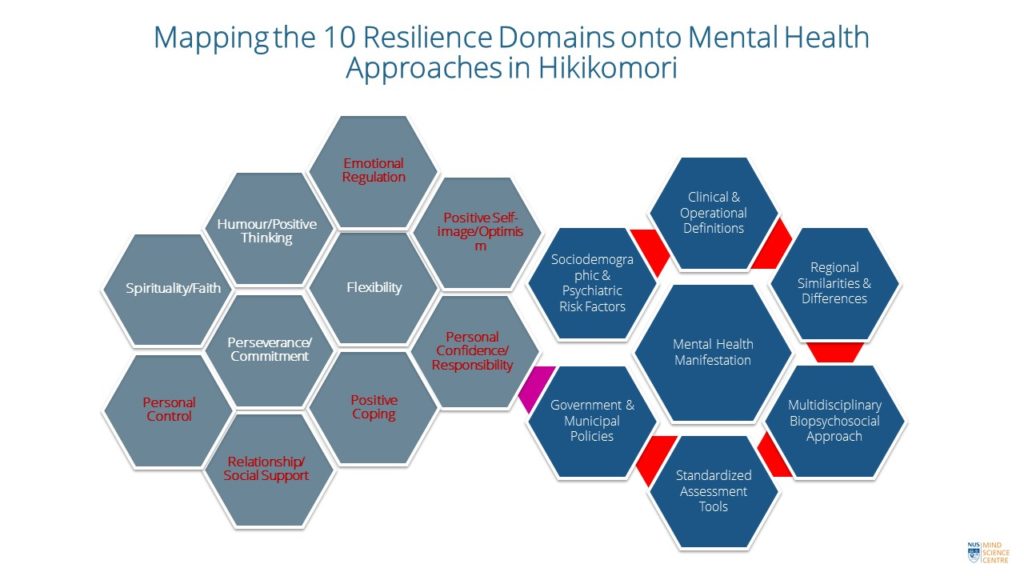
To stimulate minds further, A/Prof John Wong gave our guests a brief introduction into the Singapore Youth Resilience Scale (SYRESS), a scale that measures the resilience of youth in the Asian context in relation to 10 domains. He showed how the scale could correlate with critical concepts drawn from the Hikikomori Phenomenon, and the potential mental health approaches that could aid in reinforcing the mental resilience in youth.
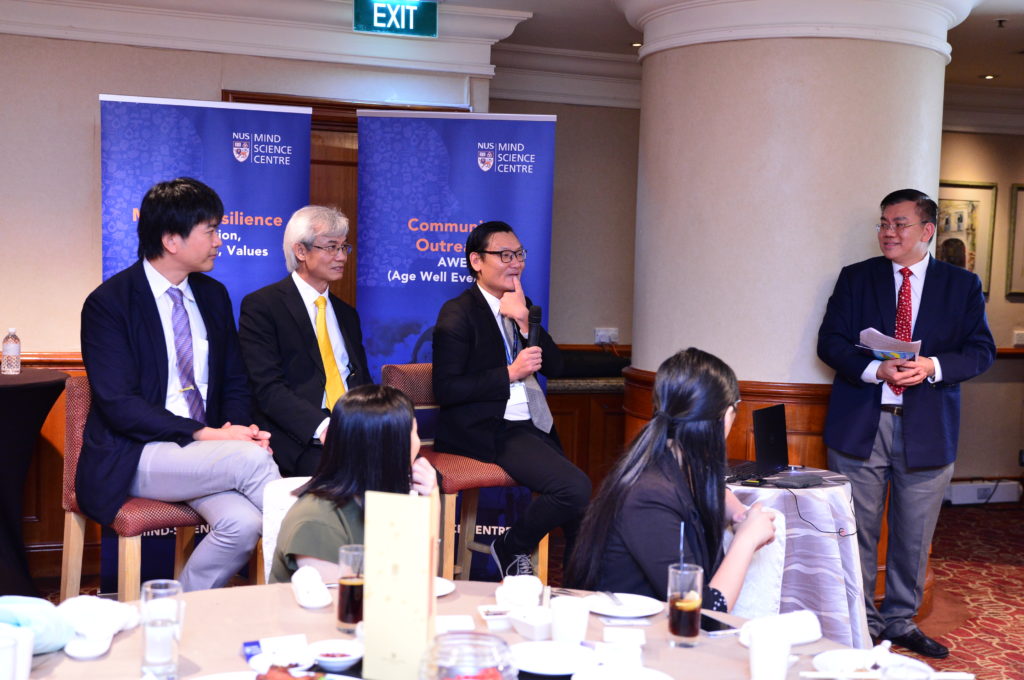
A/Prof Paul Wong sharing a handy method to remind oneself to listen when conversing with our teen child.
The evening concluded with a dialogue with the speakers, whereby A/Prof Paul Wong Wai-Ching, was also invited to share his personal experience as a father in fostering close relationship with his child. A/Prof Paul reminded parents to give their children opportunities to speak their minds rather than interrupting them and not listen. He taught our guests a fascinating way to remind oneself to listen and not speak when their child is speaking, by placing one’s thumb on the chin below the lips.
Ultimately, building mental resilience in our youths is extremely critical to prepare them for various life challenges, to triumph over such trials, and to become mentally resilient. MSC hopes that all guests have enjoyed the dinner dialogue and have gained some insights in building the mental resilience of our youth, to begin making a difference, starting from people closest to us – youths at home.
